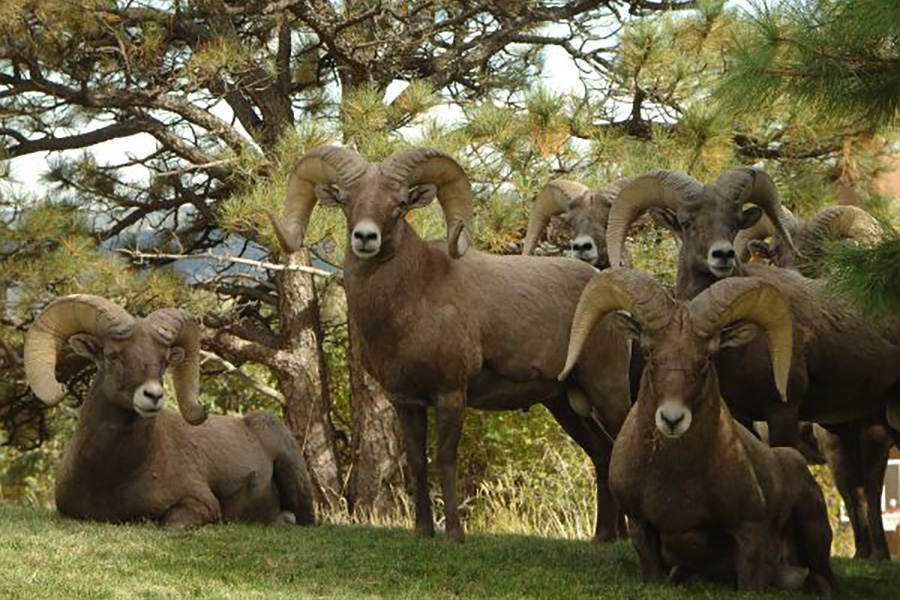The word ayal (𐤀𐤉𐤋) means “ram” meaning a male sheep.
The Paleo-Hebrew language or the original language of the Ābarayam is one spoken with an emphasis on the rauakh (breath, wind, spirit). With the language of the Ābarayam, each letter has a meaning and a number associated with it that adds meaning to each word they’re used with. Below you will be able to learn more about the letter in Ancient Hebrew, Yiddish Hebrew, Greek, and much more.
Letter Meanings
| Letter | Meaning |
|---|---|
| 𐤀 (a) – ah | Ox, strength, leader Prefix: Turns word into first-person |
| 𐤉 (y) – ya | arm, hand, work, thrust, deed, make, throw, worship |
| 𐤋 (l) – la | staff, goad, control, toward, protect, authority, bind, yoke, lead |
| Ābarayat Number | 111 = 1 (a) + 10 (y) + 30 (l) |
| Hebrew Gematria | 422 = 1 (a) + 400 (y) + 1 (a) + 20 (l) |
| English Gematria | 234 = 6 (a) + 150 (y) + 6 (a) + 72 (l) |
| Simple Gematria | 39 = 1 (a) + 25 (y) + 1 (a) + 12 (l) |
Based on the meaning of the letters the word could be defined as:
- “leader of worship of authority (power)”
- “strength to make yoke”
- “strength to create bind”
- “strength of work to protect”
Definitions for 𐤀𐤉𐤋 / ayal
| Language | Word | Transliteration | Pronunciation | Definition |
|---|---|---|---|---|
| Ābarayat | 𐤀𐤉𐤋 | ayal | aw-yal | mighty man, lintel, oak, post, ram, tree. |
| English | ram | ram | ram | a male sheep. |
| Hebrew | אַיִל | ayil or eyal | ah’-yil or eh-yawl’ | |
| Arabic | كبش | kabsh | ka-besh | |
| Greek | πρόβατον | probaton | prob’-at-on | a sheep |
Images for 𐤀𐤉𐤋 / ayal


Definitions for 𐤀𐤉𐤋𐤉 / ayalay
When adding the 𐤉 (yad) to the end of a word, it creates a possessive of the original word. It can either signify “my…” or identify a member of a nation. For example, 𐤏𐤁𐤓 (Ābar) is the progenitor, but 𐤏𐤁𐤓𐤉 (Ābaray) is the singular descendant of him also known as a Hebrew.
| Language | Word | Transliteration | Pronunciation | Definition |
|---|---|---|---|---|
| Ābarayat | 𐤀𐤉𐤋𐤉 | ayalay | aw-yaley | Elli |
| English | Elli | Elli | el-ee | Scandinavian Mythology: an old woman, a personification of old age, who defeated Thor in a wrestling match. |
| Hebrew | ||||
| Arabic | ||||
| Greek |
Images for 𐤀𐤉𐤋𐤉 / ayalay


Definitions for 𐤀𐤉𐤋𐤉𐤌 / ayalayam
When adding the 𐤌 (mayam) after the 𐤉 (yad) to the end of a word, it creates a plural of the original word. It can identify multiple members of a nation. For example, 𐤏𐤁𐤓 (Ābar) is the progenitor, but 𐤏𐤁𐤓𐤉𐤌 (Ābarayam) are the plural descendants of him also known as Hebrews.
| Language | Word | Transliteration | Pronunciation | Definition |
|---|---|---|---|---|
| Ābarayat | 𐤀𐤉𐤋𐤉𐤌 | ayalayam | aw-yal-yawm | Rams |
| English | rams | rams | rams | male sheeps |
| Hebrew | ||||
| Arabic | ||||
| Greek |
Images for 𐤀𐤉𐤋𐤉𐤌 / ayalayam


Definitions for 𐤀𐤉𐤋𐤉𐤕 / ayalayat
When adding the 𐤕 (tau) after the 𐤉 (yad) to the end of a word, it creates a plural of the original word. It identifies the language or a sign of a nation’s existence. For example, 𐤏𐤁𐤓 (Ābar) is the progenitor, but 𐤏𐤁𐤓𐤉𐤕 (Ābarayat) is the language of him also known as Paleo-Hebrew language.
| Language | Word | Transliteration | Pronunciation | Definition |
|---|---|---|---|---|
| Ābarayat | 𐤀𐤉𐤋𐤉𐤕 | ayalayat | aw-yal-yawt | |
| English | ||||
| Hebrew | ||||
| Arabic | ||||
| Greek |
Images for 𐤀𐤉𐤋𐤉𐤕 / ayalayat


Classification
You can continue your studies of the words by viewing Strong’s entries for: